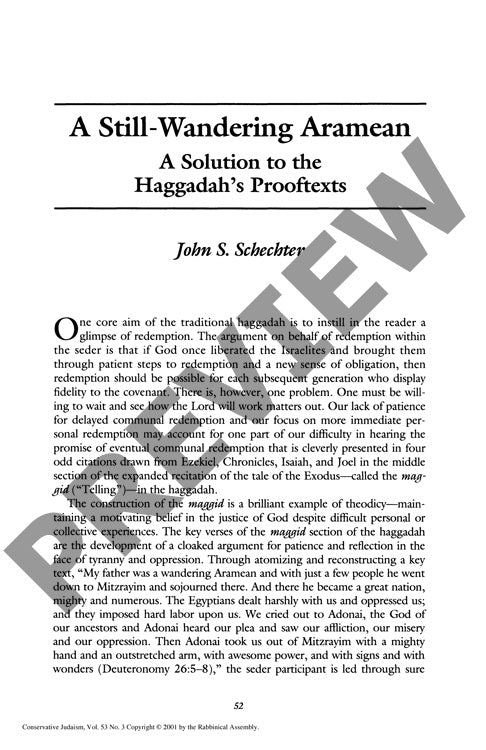A Still Wandering Aramean a Solution To
Couldn't load pickup availability
Ancient rabbis embedded a sophisticated theological message about exile and redemption within four obscure biblical citations in the Passover Haggadah's maggid section - a message that speaks directly to the challenge of maintaining faith during prolonged displacement. By analyzing passages from Ezekiel, Chronicles, Isaiah, and Joel through the lens of post-Tannaitic rabbinic interpretation and Greco-Roman attitudes toward celestial omens, the research reveals how religious authorities crafted a careful theodicy to address their communities' growing impatience with unrealized messianic promises. The methodology combines comparative analysis of biblical sources, examination of contemporary cultural contexts regarding divine signs, and investigation of rabbinic midrashic techniques. These carefully selected verses transformed the traditional Deuteronomic pilgrim's confession into a nuanced argument for sustained covenant loyalty during oppression. The citations served a crucial dual purpose: offering hope to dispersed Jewish communities while warning against premature rebellions that could prove disastrous, as the Bar Kokhba revolt had demonstrated. Recovering the original cultural framework of these passages illuminates the Haggadah's sophisticated theological architecture that advocated redemption through steadfast patience rather than hasty action.

More Information
-
Physical Description
-
Publication Information
Published
ISBN
-
Publication Credits
John Schechter

